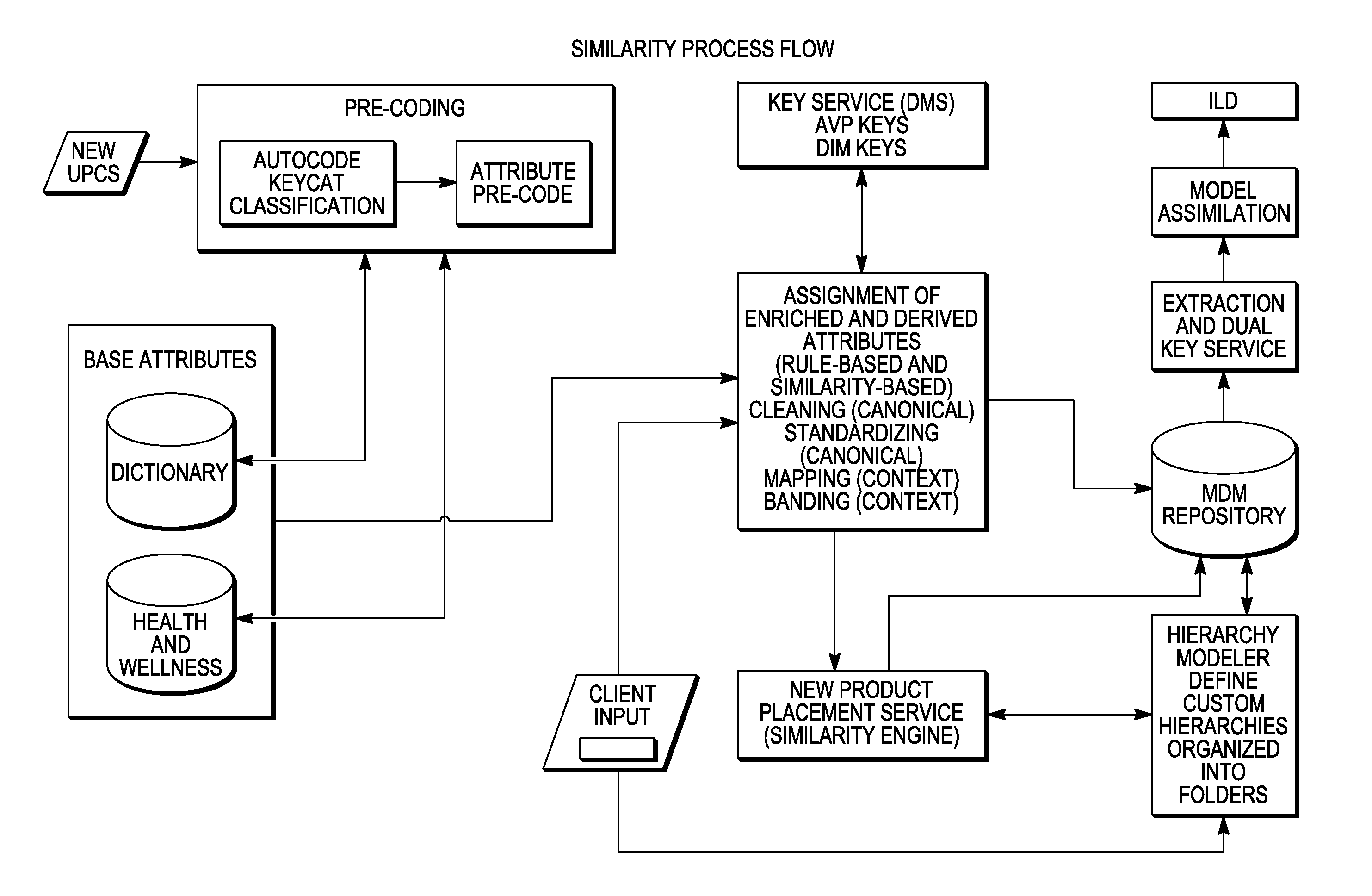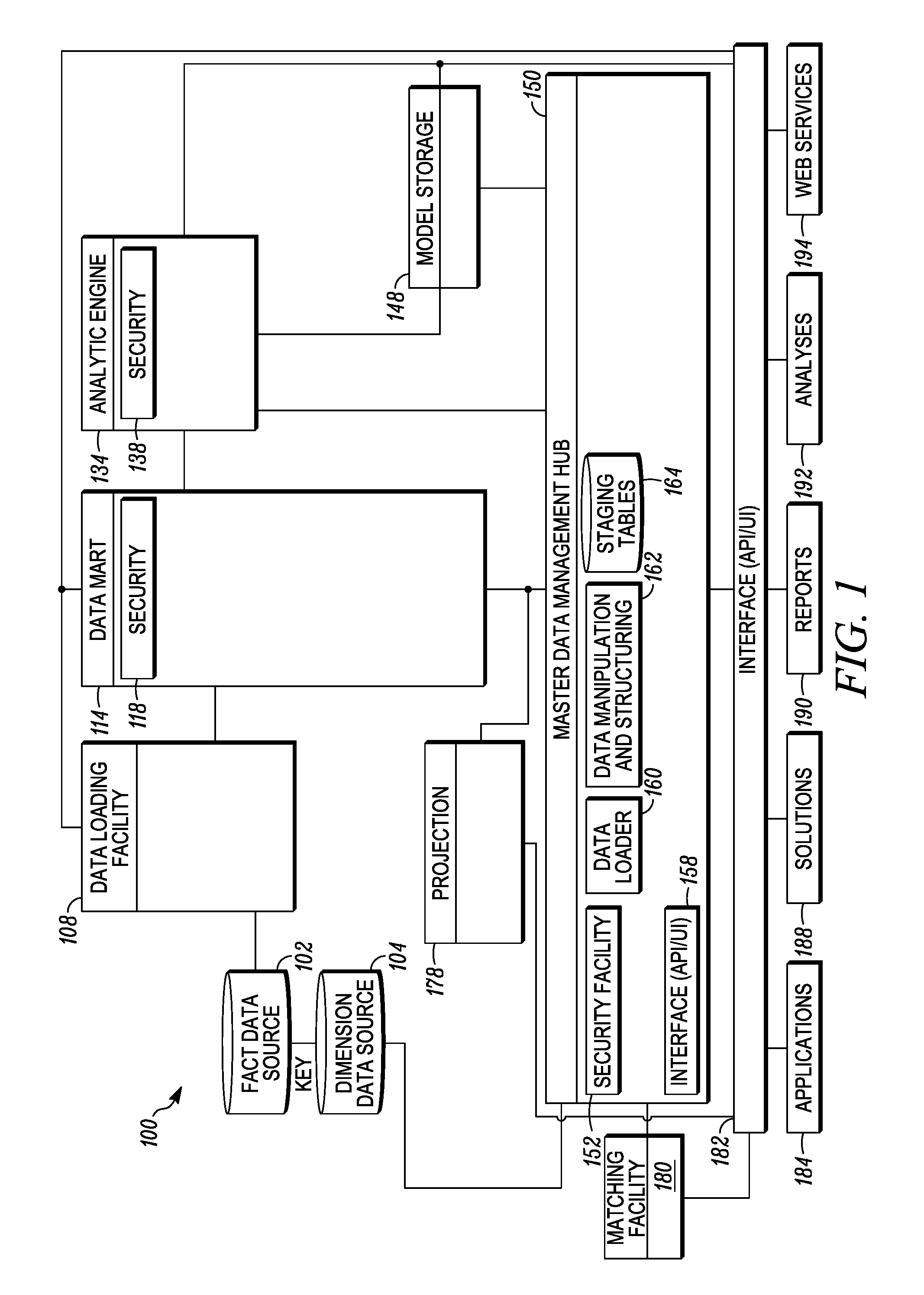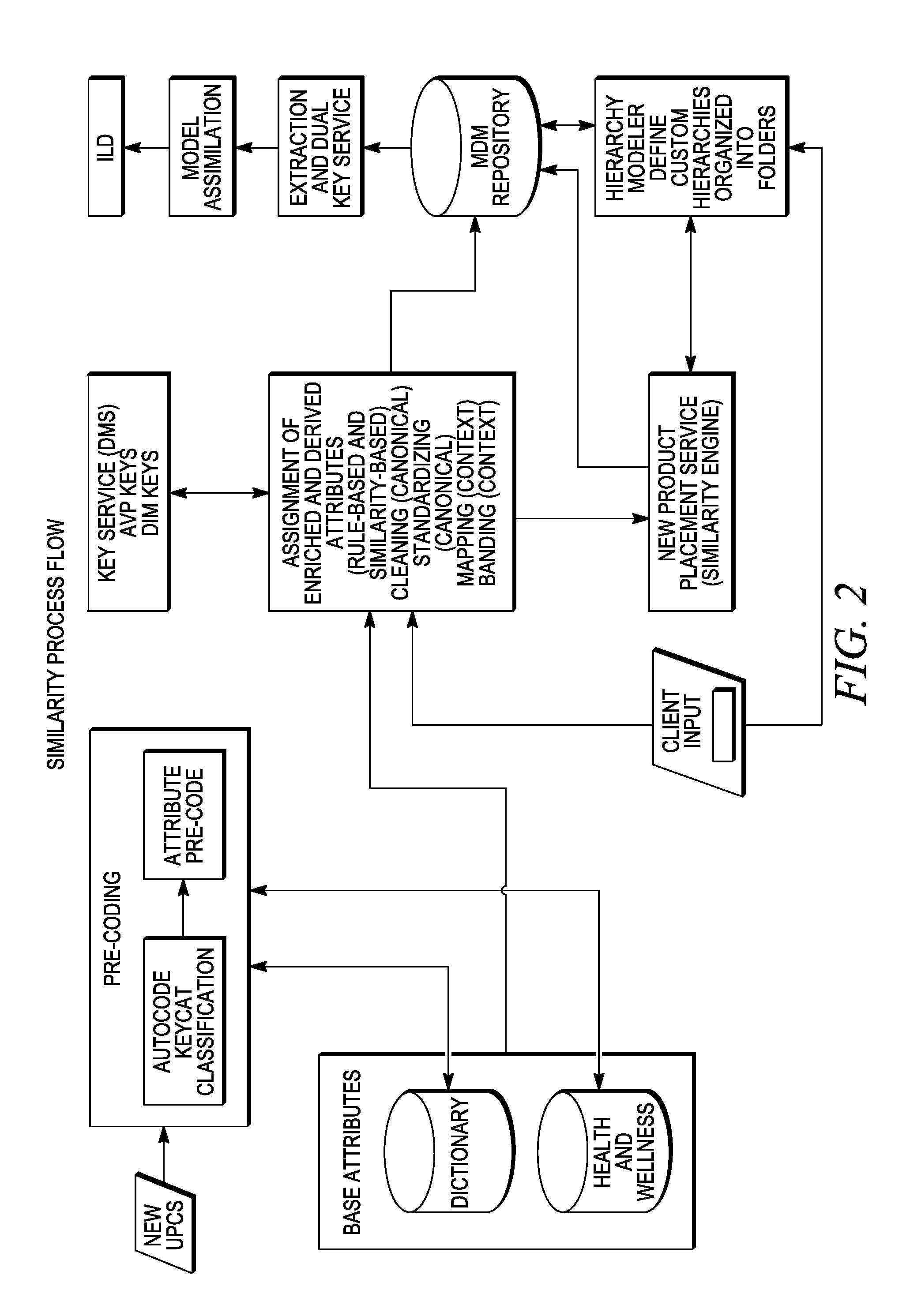Similarity matching of products based on multiple classification schemes
a classification scheme and similarity matching technology, applied in the field of methods and systems for analyzing data, can solve problems such as brittle mechanisms that cannot adapt to on-the-fly changes in data, dimensions, third parties, and cannot satisfy the analyst's desire to directly dictate statistical qualities
- Summary
- Abstract
- Description
- Claims
- Application Information
AI Technical Summary
Benefits of technology
Problems solved by technology
Method used
Image
Examples
Embodiment Construction
[0018]Referring to FIG. 1, the methods and systems disclosed herein are related to improved methods for handling and using data and metadata for the benefit of an enterprise. An analytic platform 100 may support and include such improved methods and systems. The analytic platform 100 may include, in certain embodiments, a range of hardware systems, software modules, data storage facilities, application programming interfaces, human-readable interfaces, and methodologies, as well as a range of applications, solutions, products, and methods that use various outputs of the analytic platform 100, as more particularly detailed herein, other embodiments of which would be understood by one of ordinary skill in the art and are encompassed herein. Among other components, the analytic platform 100 includes methods and systems for providing various representations of data and metadata, methodologies for acting on data and metadata, an analytic engine, and a data management facility that is cap...
PUM
 Login to View More
Login to View More Abstract
Description
Claims
Application Information
 Login to View More
Login to View More - R&D
- Intellectual Property
- Life Sciences
- Materials
- Tech Scout
- Unparalleled Data Quality
- Higher Quality Content
- 60% Fewer Hallucinations
Browse by: Latest US Patents, China's latest patents, Technical Efficacy Thesaurus, Application Domain, Technology Topic, Popular Technical Reports.
© 2025 PatSnap. All rights reserved.Legal|Privacy policy|Modern Slavery Act Transparency Statement|Sitemap|About US| Contact US: help@patsnap.com



